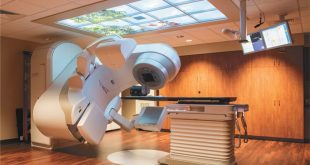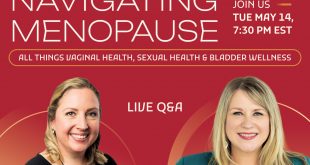Diet, exercise and getting recommended screenings are some of the ways to lessen your risk of getting cancer.
As we close out 2021, many of us will be making resolutions to get healthier in the coming year. Even though most Americans know that we should make healthy choices, such as quitting smoking, protecting skin from sun damage, eating a healthy diet, exercising more and getting the recommended screenings, following these recommendations can often be difficult. Getting healthy is definitely worth the effort because, according to the National Institutes of Health, certain lifestyle choices can lessen the chances an individual has of developing cancer.
Each year, over half a million Americans die of cancer; the startling news is that about one-third to one-half of these deaths are linked to lifestyle choices and, potentially, could have been prevented. Start reducing your risk of cancer by making these choices in your life:
• Get recommended screenings such as colonoscopies, Pap smears and mammograms.
• Maintain a healthy weight throughout life.
• Be physically active on a regular basis.
• Make healthy food choices with a focus on plant-based foods.
• Stop smoking – or better yet, never start.
• Wear sunscreen with an SPF of at least 30.
• Let your doctor know if there is a family history of cancer.
CANCER SCREENINGS ARE MORE IMPORTANT THAN EVER
Throughout the pandemic, many people have chosen to postpone or even skip recommended cancer screenings, such as mammograms, prostate exams, PSA testing or colonoscopies, among others, for various types of cancer, causing a substantial delay in diagnosis and treatment for senior adults and Medicare beneficiaries. Because of this, some patients are being diagnosed with more advanced stages of cancer, and there have been delays in beginning treatment, resulting in poorer outcomes for patients. Early diagnosis and treatment is a substantial factor in surviving cancer; please do not skip or delay your recommended screenings.
SKIN CANCER AFFECTS 1 IN 5 AMERICANS – TAKE IT SERIOUSLY
Skin cancer is the most common form of cancer in the United States. The two most common types of skin cancer, basal cell carcinoma and squamous cell carcinoma, are highly curable. Melanoma, the third most common skin cancer, is much more dangerous.
By now, most people know a sunscreen should be used when you are going to be outdoors, even for a short period of time. However, not all sunscreens are created equally. For maximum protection, oncologists recommend a sun protection factor (SPF) of 30 or greater, regardless of skin color or ethnicity. Other recommendations include avoiding tanning beds or sunlamps and examining your skin, head to toe, every month for any changes. You should also have a doctor examine your skin annually.
SMOKING AND CANCER
According to the Centers for Disease Control and Prevention (CDC), cigarette smoking is the number one risk factor for lung cancer. It’s estimated that in the United States smoking causes about 90% of lung cancers; smokers are 15-20% more likely to get lung cancer than nonsmokers. Tobacco products such as cigars or pipes also increase the risk for lung cancer, as well as throat and mouth cancers. Even smokeless tobacco has been proven to increase the risk of oral cancer, throat cancer, stomach cancer and pancreatic cancer.
THE ROLE OF DIET IN PREVENTING CANCER
Although no particular food or diet product can prevent cancer, there is growing evidence that diet can play a significant role in some types of cancer. For example, studies have found a higher incidence of prostate cancer in men whose diets are high in fats, particularly animal fats, and low in vegetables. Likewise, 30-40% of certain types of breast cancer have been linked to what we eat, especially if our diet is a contributing factor to obesity. A diet that is high in fruits, vegetables, legumes and whole grains, and low in animal fat, processed foods and sugar, is generally considered healthier and can boost your immune system to help fight diseases such as cancer.
World-Class Cancer Treatment Close to Home
Florida Cancer Specialists & Research Institute (FCS) has a statewide network of expert, board-certified physicians who bring world‐class cancer treatments to local communities, both large and small, in locations throughout Florida. FCS is also a strategic partner with Sarah Cannon, one of the leading research and clinical trial organizations in the world. This alliance provides FCS patients access to the newest, most innovative and most promising new treatments.
Florida Cancer Specialists treats patients with all types of cancer and offers a number of services, including an in-house specialty pharmacy, an in-house pathology lab, financial counselors at every location and 24/7 access to care managers, who help deliver the most advanced and personalized care in your local community.
Hudson
7651 Medical Drive
Hudson, FL 34667
Hudson North
14100 Fivay Road
Suite 380
Hudson, FL 34667
Land O’ Lakes
19409 Shumard Oak Drive,
Suite 101
Land O’ Lakes, FL 34638
Trinity
9320 State Road 54
Trinity, FL 34655
Wesley Chapel
26823 Tanic Drive
Wesley Chapel, FL 33544
Wesley Chapel Gynecology Oncology
2391 Oak Myrtle Lane
Wesley Chapel, FL 33544
Zephyrhills
38010 Medical Center Avenue
Zephyrhills, FL 33540
For more information, visit FLCancer.com
 Central Florida Health and Wellness Magazine Health and Wellness Articles of the Villages
Central Florida Health and Wellness Magazine Health and Wellness Articles of the Villages



